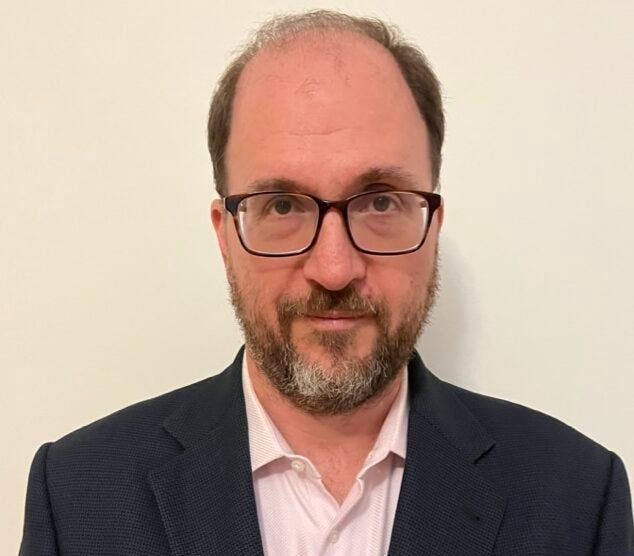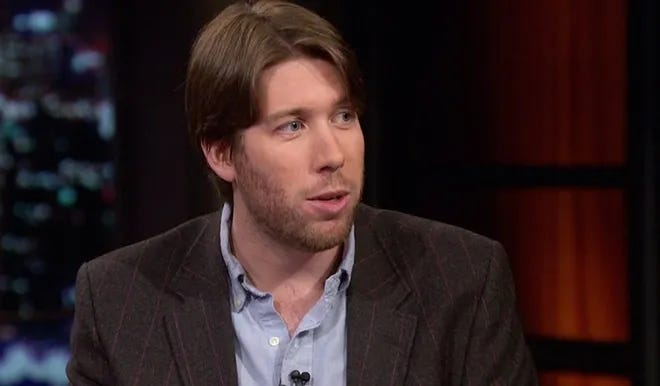Remember Congress?
FreeCons seek to help legislative branch reassert its primary role over policy
Among America’s founding institutions that Freedom Conservatives have pledged to defend is the constitutional separation of powers. Unfortunately, policymakers of both parties have been eroding it for decades.
“One manifestation of this problem is the explosion of unaccountable and unelected regulators who routinely exceed their statutory authority and abridge Americans’ constitutional rights,” we wrote in the FreeCon Statement of Principles.
Dismantling the administrative state and restoring the primary authority over federal policymaking to the legislative branch should be top priorities for today’s American Right.
“The Constitution of the United States is the best arrangement yet devised for granting government the just authority to fulfill its proper role,” we observed, “while restraining it from the concentration and abuse of power.”
Or, as FreeCon signatory Jonah Goldberg recently wrote in The Dispatch:
“Congress is where politics is supposed to happen. When it fails to absorb political and partisan passions, those passions spill out into institutions not designed to absorb them.”
The federal judiciary also has a critical role to play in restoring the separation of powers, as FreeCon signatory Jonathan Adler pointed out in Civitas Outlook.
“When legal elites turn a blind eye to threats to judicial independence and the rule of law from their political allies, they degrade the value of their voices,” wrote Adler, who will assume a new role this summer as Tazewell Taylor Professor of Law at the William & Mary Law School.
“The ability to identify transgressions against one’s own interests is a sign of good faith and demonstrates that the principle actually matters and is not simply a useful cudgel to wield in political combat.”
Today we feature the work of other FreeCon signatories who champion the separation of powers and seek to restore constitutional order to the federal government.
Pattern is clear
Amber Gunn is senior policy analyst at Mountain States Policy Center and a FreeCon signatory.
A former policy director at the Freedom Foundation and member of the American Legislative Exchange Council's Tax and Fiscal Policy Task Force, Gunn is widely cited by media outlets and legislative staff for her work on economic policy and other issues.
In a Center Square op-ed published in the Tacoma News Tribune, Idaho State Journal, Independent Record, and other newspapers, Gunn observed that President Trump’s recent spate of tariff announcements and retractions illustrates the risks of one-person rule.
“Whether tariffs are the right policy tool is a different question from whether the executive is the right branch to decide when and how to use them,” she wrote. “A tariff is simply a tax on imports, inescapably passed on to consumers.”
Under the U.S. Constitution, Congress retains the power to levy taxes — and cannot simply delegate that power without constraints and oversight, Dayton argued.
Trump is “hardly the first to flex executive power,” she continued. “President Joe Biden tried to forgive hundreds of billions in student debt by executive fiat — authority the Supreme Court said he didn’t have. President Barack Obama bypassed Congress entirely, reshaping immigration policy through sweeping executive action.”
“The pattern is clear: The more we cheer power when it suits us, the harder it becomes to resist when it doesn’t.”
Show political will
Soren Dayton currently serves as director of governance at the Foundation for American Innovation and formerly led institutional reform efforts at Protect Democracy. He’s also a FreeCon signatory.
Dayton has testified to Congress on numerous occasions about how it can strengthen institutions, generating news coverage by the Washington Post, New York Times, and National Review, among other outlets.
Once the co-founder of a software company, Dayton has also worked on GOP presidential and congressional campaigns and as executive director of the Young Republican National Federation.
On his new Substack, Dayton wrote that the proliferation of so-called national emergencies has helped draw constitutional authority away from Congress.
“The last three presidential terms — Trump, Biden, and Trump again — have all relied on emergency declarations in ways that test the limits of executive power,” he argued. “These tools are no longer exceptional. They are routine.”
On multiple issues, past leaders have “built systems that assume Congress will act — and then watch them fail when it doesn’t,” Dayton wrote. “We assume that the right legal trigger will produce political will. But it’s the reverse. Political will is what makes legal tools work.
“Action comes first. Action builds precedents. It creates momentum. It changes expectations. It gives courts something to respond to. It gives members of Congress something to defend. It creates constituencies — inside the institution and out.”
Unexpected blow
Charles C.W. Cooke is a senior writer at National Review, host of the “Charles C. W. Cooke Podcast,” and a FreeCon signatory.
Author of The Conservatarian Manifesto, Cooke has appeared on HBO’s “Real Time with Bill Maher,” Fox News’s “Red Eye,” and other programs on the BBC, MSNBC, and Fox Business.
In a recent NRO piece, he argued that while Donald Trump has tried to expand executive powers in some domains, his administration has also worked to constrain it in others.
A new executive order from President Trump targets overcriminalization of regulatory infractions, stating that “that no one — likely including those charged with enforcing our criminal laws at the Department of Justice — knows how many separate criminal offenses are contained in the Code of Federal Regulations.”
This, it concludes, is a problem not only because it makes life difficult for the citizenry but because “it allows the executive branch to write the law, in addition to executing it.”
All too often, Cooke wrote, the federal bureaucracy has acted unjustly.
“Unwinding its grip on American life will take an effort that outlasts this president and the next, but with last week’s criminally under-covered executive order, President Trump has struck a welcome — and unexpected — blow for the cause.”
In the mix
• In the Wall Street Journal, FreeCon signatory John Cochrane urged Congress, the Fed, and the White House to adopt a new approach to combating inflation.
“President Trump’s tariffs and trade war, if not swiftly abandoned, will cause another stagflationary supply shock, raising prices while reducing the economy’s productive capacity,” wrote Cochrane, a senior fellow at the Hoover Institution.
“The Fed will face an unhappy choice between more inflation and somewhat more contraction. Lower interest rates won’t do much to goose an economy with inflation-skittish markets.”
Congress should do its part by forswearing stimulus spending and slashing budget deficits.
“A good strategy today is the only way to avoid an inflation surge when the next crisis inevitably hits.”
• In the New York Post, FreeCon signatory David Harsanyi argued that it was “delusional” for the Democratic Party to blame former president Joe Biden for its electoral failings.
“Let’s recall that every congressional Democrat decided to shoehorn the ‘Inflation Reduction Act’ into law even after most economists warned it would plunge the nation into price spikes,” wrote Harsanyi, a senior writer at the Washington Examiner.
Nor did Democratic officials speak out against the “anarchy of illegal immigration” despite the fact that 78% of Americans believed the border was a crisis or major problem.
“There is a reason the Democratic Party’s polling is at historic lows right now, and it’s not just Biden’s memory problems.”
• On the “Giving Ventures” podcast, Freedom Conservatism founders Avik Roy and John Hood discussed the origins and goals of the project.
Many on the Right take issue with free markets, envision a more expansive role for the federal government, and seek to limit personal freedoms in pursuit of cultural victories, observed host Peter Lipsett of DonorsTrust.
Roy explained that thinkers have long debated the tensions between freedom and virtue. “These are very old questions,” he said. “Donald Trump was a catalyst of reigniting those debates within the conservative movement.”
Issues that “traditionally divided the American Right from the American Left now are dividing groups on the American Right,” Hood added.



